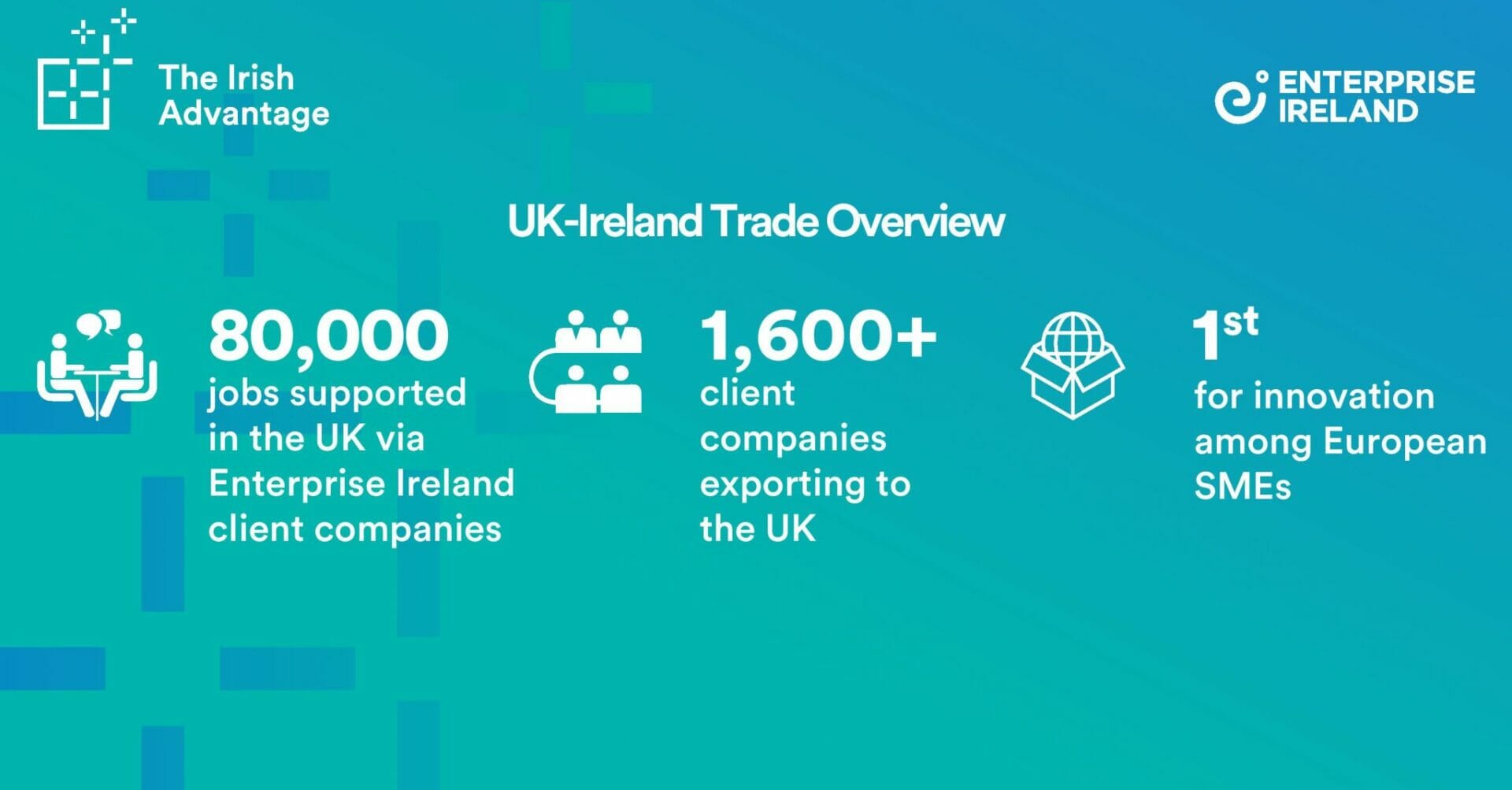![Enterprise Ireland supports over 80,000 UK jobs[1] @Entirl](https://construction-update.co.uk/wp-content/uploads/sites/9/2018/03/Enterprise-Ireland-Logo-High-Res_CMYK.jpg)
Enterprise Ireland supports over 30,000 jobs across the Construction, Cleantech and Consumer sectors, providing a vital skills injection to the UK economy
21 March 2018, LONDON – Figures released from Enterprise Ireland, the Irish government trade development agency and the third largest seed investor in Europe, reveal it supports over 80,000 jobs in the UK via the enormous success of its Irish client companies.
Construction, cleantech and consumer products remain the most prevalent non-food sectors, accounting for 40% of the 80,000 figure and supporting over 30,000 jobs. Other up and coming sectors include BPO and Consumer Services, and Electronics & Engineering.
Named the best country in the Eurozone for doing business[2], Ireland is one of the UK’s main trading partners. With the UK noted as the largest export market for Irish owned companies, 35% of all exports by Enterprise Ireland client companies come to the UK[3].
As Britain enters its new economic chapter, Ireland will continue to be an important trading partner, especially as trade between UK and Ireland stands at over €1bn per week[4].

The announcement comes at a time when Irish SMEs have been ranked number one for innovation by the European Commission[5], an indicator of the culture of innovation that continues to deliver competitive advantage for UK partners in the construction sector.
John Hunt, Senior Market Adviser, Construction, at Enterprise Ireland, commented: “St Patrick’s Day is synonymous with celebrating Ireland which puts the spotlight once again on Irish companies’ contribution to the economic wellbeing and sustainability of communities across the UK. The important trading relationship delivers economic benefit for both countries, including a significant jobs boost to the UK.”

“Innovation and adaptability are among the reasons UK companies opt for Irish partners in the construction sector. The Irish Advantage therefore needs to be capitalised upon, and we are determined to uphold these strong trade relations going forward, helping Irish companies in the construction sector deepen their collaboration with the UK even further.”
[2] Forbes, 2016
[3] Enterprise Ireland, Annual Business Review, 2017
[5] 2017
